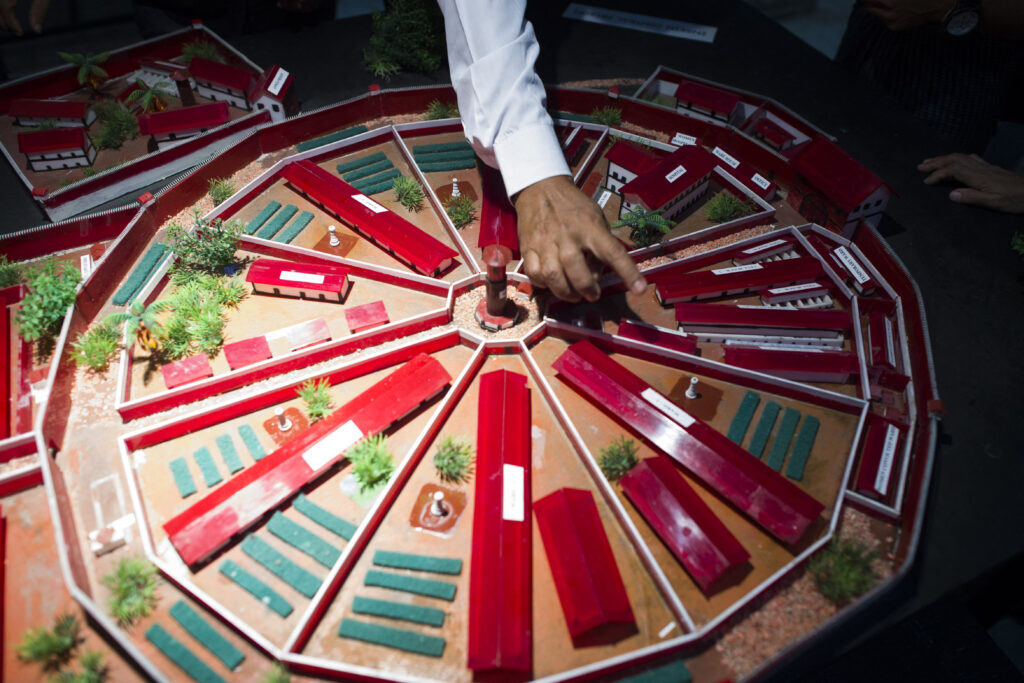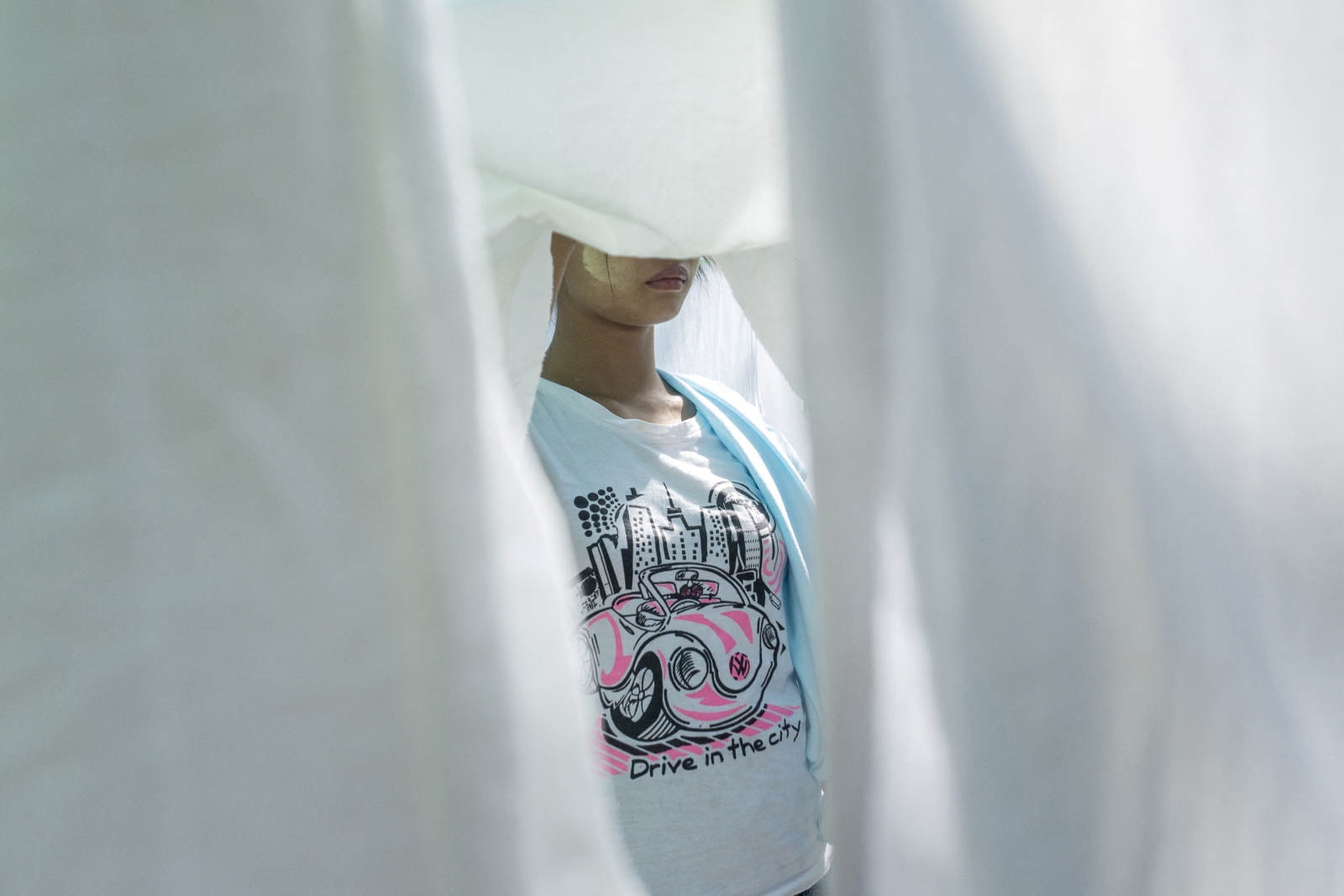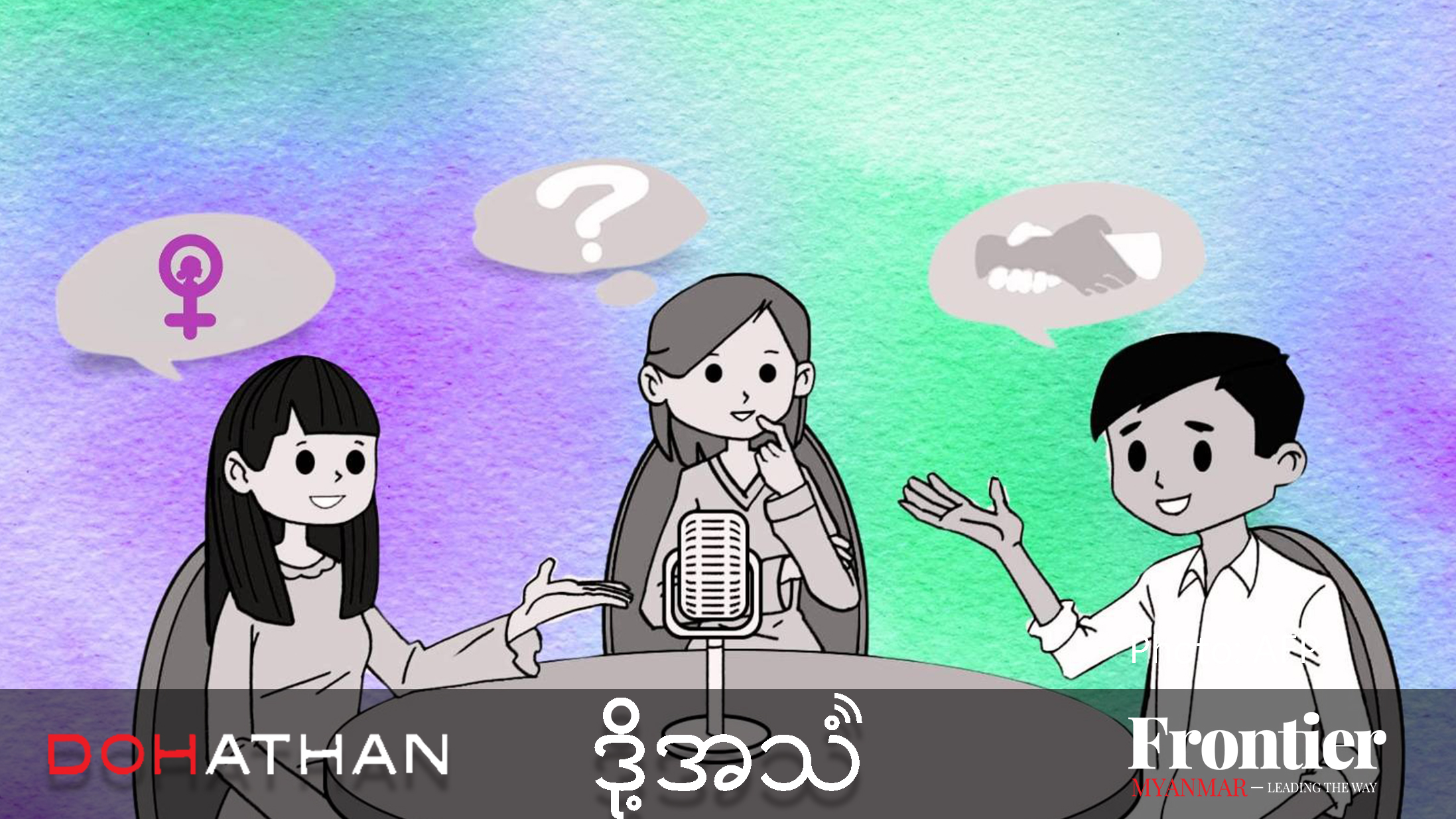Political prisoners across Myanmar have continued to express dissent from inside, often with violent consequences, as tensions simmer with prison officials.
By FRONTIER
On January 5 at around 11pm, four political prisoners were dragged from their cells in Pathein Prison and brutally beaten by prison authorities.
“They suddenly raided their rooms and found a mobile phone,” said Ko Kyaw Oo*, a former political prisoner who now helps others in the Ayeyarwady Region capital who have been jailed for defying the junta. Of the roughly 1,500 prison inmates, around 300 are political prisoners.
Kyaw Oo insists that, in the first place, the prisoners would only have been able to get a phone by purchasing it from prison authorities making a steep profit.
“If a cellphone costs K300,000 outside, it will cost K1.5 million in the prison. Only the prison staff can sell it. So, they know who has the phone,” Kyaw Oo said. “Then they will catch them and beat them. After that, they will sell the phone again to somebody else. The prison staff earn money from this.”
The next morning, when the four prisoners had still not been returned to their cells, other inmates became concerned. When they started protesting, the prison authorities cracked down, allegedly firing live rounds and slingshots, as prisoners tried to fight back by throwing chunks of brick.
“Around 20 prisoners were beaten,” said Kyaw Oo.
But the assault didn’t end there.
That night, the prison disciplinary group, which included non-political convicts, offered to mediate a meeting between the protesting prisoners and prison authorities. About 70 political prisoners went to the meeting, but the waiting group of convicts allegedly started beating them with bamboo sticks.
“They beat them very hard,” said U Aung Thein*, father of one of the political prisoners. “When our sons later appeared in court …they had serious injuries on their bodies.”
As a result of the beatings, Kyaw Oo said one political prisoner died and about 10 others were hospitalised. The Pathein Prison authorities and the junta released a statement attributing the violence to a fight between prisoners.
“It was unjust torture,” Kyaw Oo said angrily.
Since seizing power in a coup in February 2021, the military regime has cracked down on dissent, arresting over 17,000 people according to independent monitoring group the Assistance Association for Political Prisoners. Around 13,600 remain detained, as some have been released during periodic amnesties.
Many of the prisoners are prominent activists and have attempted to continue protesting from behind bars, often with brutal consequences. Prison officials’ animosity towards political prisoners can also result in oppressive treatment, further encouraging acts of dissent. Frontier understands that there have been more than 10 protests in prisons in Yangon, Mandalay and Pathein since the coup.
“There were about six protests in [Yangon’s] Insein Prison,” said Ko Zeyar Lin*, who was jailed for protesting in March 2021 and released in June that same year. “Actually, protests in the prisons are the most dangerous. When we fight in the hands of the enemy, they can take our lives. The cost is too high.”
A month after his arrest, Zeyar Lin and some other political prisoners expressed their first act of defiance against the tough conditions of the prison, which included poor food and sanitation and draconian rules, as well as a ban on receiving parcels from family members. In every cell, there is a dark green vinyl poster spelling out 15 rules for the prisoners, including requiring them to wake up at 6am, sit in an assembly and participate in a roll call.
“First, six of us refused to assemble and recite [our prisoner numbers], and we discussed the issue with other 505-A comrades,” he said, referencing the incitement charge in the Penal Code commonly levied against protesters and activists. “When a prison officer came to our room, we explained our position and warned him that unless [the harsh conditions] were lifted, we’d start a hunger strike.”
In retaliation, the group of six – four student activists and two journalists – were moved into an eight-by-10-square-foot cell, where they were kept for seven days, only allowed out for two hours each day. They were then moved again to a separate part of the prison where they were kept with ordinary convicts rather than other political prisoners.
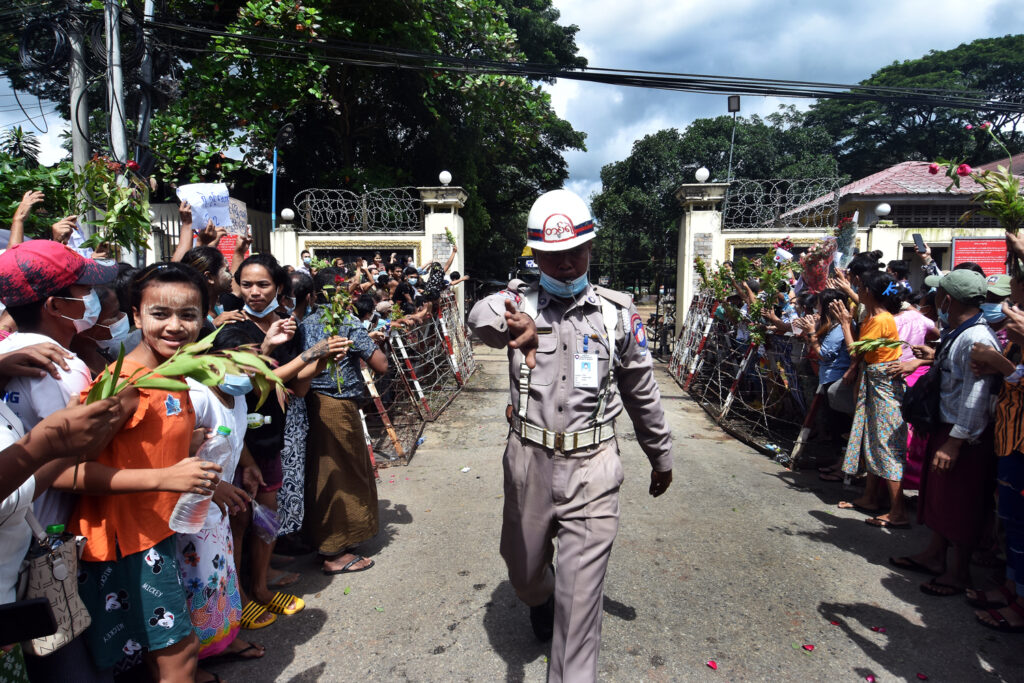
Protests in the time of COVID
Protester Ma Wai Tun was arrested in April 2021 in Yangon, when security forces raided her house looking for her father, who was a member of the National League for Democracy.
“Life was hell at that time,” she said, alleging that she was beaten at the Shwepyithar interrogation centre while being asked about her father’s activities.
Around two months after Ma Wai Tun arrived at Insein Prison, she said prison authorities began imposing increasingly onerous and arbitrary restrictions on political prisoners, who were isolated from other inmates.
“They instructed us to get up at 4:30 in the morning and pray. Also, we had to line up for roll call at 5am and they restricted the time when we could use the toilet,” she said.
In July 2021, as the Delta variant of COVID-19 ripped through Myanmar, political prisoners were counterintuitively moved to even more congested facilities.
“There were only two rooms in the new dormitory with around 100 people in each,” said Wai Tun, who claimed nearly every prisoner became infected with COVID-19.
She said the prisoners were refused medical treatment and one died of COVID-19, although prison authorities denied this. The prisoners complained about the conditions, and when they were ignored, decided to show their defiance in small ways.
“At first, we refused to take a shower. If they asked us to gather to shower, we wouldn’t gather,” she said, adding that they then refused to attend the morning roll call.
Ye Thu*, who was arrested for protesting in March 2021 and released last year, recalled similar conditions during the Delta wave.
“The situation deteriorated for every prisoner,” he said. “They had a responsibility to give us medical treatment, but instead they oppressed us even more.”
He said authorities closed the courts, extending the time in prison of those still on trial, suspended the delivery of mail and refused to let prisoners out of their cells. Before the Delta wave, prisoners were able to leave their cells and socialise from 7:30am to 11:30am and again from 2:30pm to 5:30pm, Ye Thu said.
“They locked us up. They treated us like animals,” he said, adding that the treatment pushed prisoners to plan protests.
A monk who had been charged under 505(b) of the Penal Code, also for incitement, became ill and was separated from the other prisoners. On the morning of July 23, he was heard shouting from isolation: “We can’t wait for our freedom. If you want freedom, we need to fight!” Ye Thu recalled.
“Our feelings exploded, and we started shouting,” Ye Thu said.
Prisoners began singing the famous revolutionary song “Thway Thitsar” and chanted the popular protest slogan, “the revolution must prevail.” The singing and chanting were so loud it could be heard from outside the prison, with video recordings going viral on social media.
“We were shocked and worried about those protesting. I even shed tears while listening their voices,” said Ko Aung Myint*, who lives near Insein Prison.
The following day, prison officials sat down with some of the political prisoners, who made 11 demands, including to free all political prisoners, to allow contact with family members, to provide medical treatment and to improve living conditions.
The more basic requests were met. Wai Tun said the prisoners were allowed to exchange letters with their families again twice a week and living conditions improved, but they worsened again after three months.
Prison authorities also split up the prisoners they believed led the protests, moving them to separate facilities within Insein that they shared with non-political inmates.
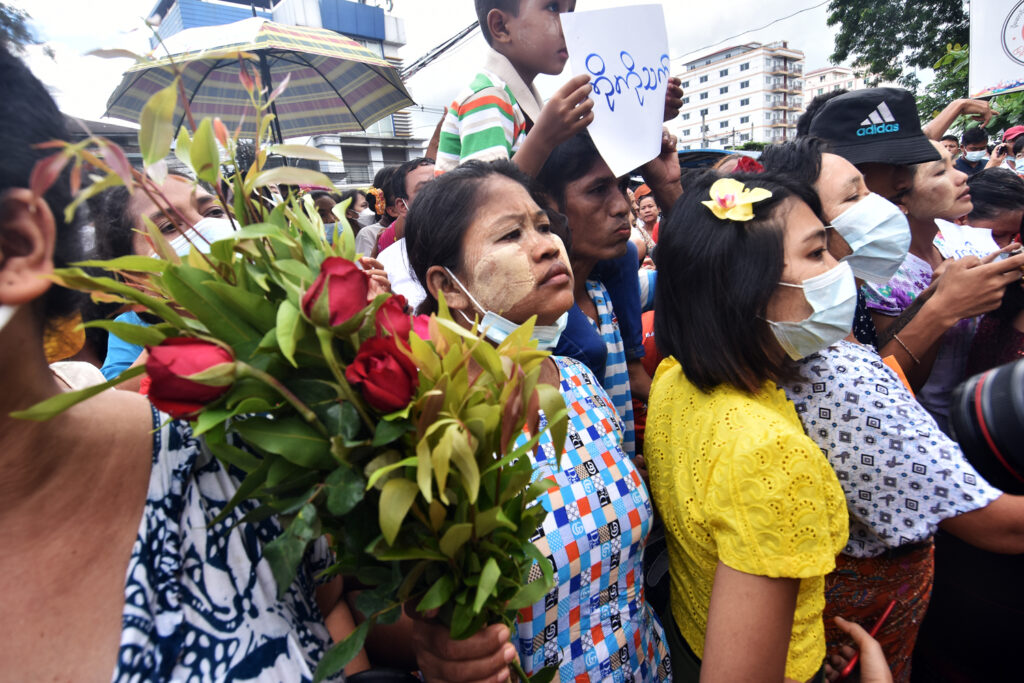
Looking to the past and the future
During another incident, in December 2021, around 90 political prisoners in Insein participated in a nationwide Silent Strike, when people across the country refused to open their businesses or leave their homes. In solidarity, the prisoners refused to leave their cells and remained completely silent until 3pm, when they sang a revolutionary song.
Prison staff descended on the protesters, beating them with sticks and wires while demanding that they identify the leader.
“One fainted. Many were injured. But they were sent to an 8-by-10-foot cell and denied treatment for their injuries,” said Zeyar Lin
“That’s why I was very worried for the prisoners in Pathein Prison,” he added. “The prison authorities are not people who understand human rights.”
Ko Tun Thu*, an activist who served a lengthy sentence in Pathein Prison after participating in the 1988 uprising against military rule, said the crackdowns on political prisoners are harsher today. He recalled one afternoon in 1993, when the prison authorities didn’t give them lunch until late in the day.
“The rice was rotten. We were very angry and began discussing a protest. Then we threw our food,” he said.
Prison authorities ordered them to sit back down, but Tun Thu and seven others refused. But rather than beating them, the authorities sent them to solitary confinement for seven days, and then promised the prisoners there wouldn’t be future problems with the food.
Disputes weren’t always resolved peacefully.
“Authorities also sometimes beat us when we did protests in the prison. But mostly they locked us in tiny cells. These days, I read much more about authorities beating and torturing political prisoners,” he said.
Zeyar Lin said the animosity between political prisoners and prison officials is only intensifying, leading to more protests and more crackdowns.
“Most of the prison officers who come from a military background really hate political prisoners. They believe activists are undermining their power and harming their interests,” he said, blaming increased oppression for the increase in protests.
He predicted that protests would continue, with violent consequences.
“Because the military is losing control to the anti-junta movement, they will oppress political prisoners even more, because political prisoners are the enemy under their control,” he said.
For Wai Tun, whenever she hears of protests in prisons, she feels both defiant and fearful.
“In prison, we were continuously oppressed both physically and mentally. When I heard the news from Pathein Prison, I was reminded of what I had to face in Insein Prison,” she said.
She also worries about her friends who remain in jail.
“When I heard that my comrades who were left inside were being tortured, I was angry. I also cried. That’s why I’m pushing even more for the revolution. I want this hell to end quickly.”
*denotes use of a pseudonym for security reasons.


